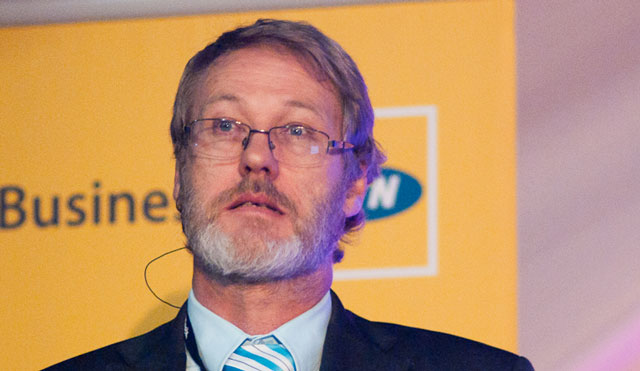
Low download speeds and high costs are turning people away from fixed-line Internet connections, parliament’s communications portfolio committee heard on Thursday.
Over the past three years, there had been a “dramatic” increase in the number of households opting to connect through mobile devices, Independent Communications Authority of South Africa (Icasa) councillor William Stucke told MPs.
“The number of households who have fixed lines is going down. This is not a healthy situation to be in.”
But the number of those where at least one member had access to the Internet through a mobile phone was rising dramatically.
“A total of 32,9% of households now have access to the Internet. It is growing because of mobile telephony, whose operators are not state owned,” Stucke said.
His colleague, Icasa senior manager Pieter Grootes, said that in this regard the situation in South Africa was “out of whack”.
“The reality in South Africa is that fixed-line prices are out of whack with the existing situation, and it’s also out of line with trends in the rest of the world.
“This is a matter that, going forward, all stakeholders — government, Icasa and licensees — will have to come together to work out, and address the fact that fixed lines cost too much, for too poor a quality.”
Grootes said consumers who wanted to buy access to the Internet would compare price and download speeds.
“If I want a fixed line, I’ve got to pay R331, and I’ll get a maximum of 1Mbit/s; however, I can go and buy — for R150 a month, from a mobile operator — a package that will give me download speeds of 21,6Mbit/s.”
In practice, these download speeds were somewhat lower.
“What this means is that if I have a fixed line, what I’ll get, if I’m lucky, is 600kbit/s download speed, at three in the morning. If I used exactly the same mobile package, which is half the cost of the fixed line, I get a download speed of over 10 Mbit/s.”
Grootes said this was the main reason the number of fixed lines was dropping. “Why should I as a consumer buy a fixed line if I can get a better, cheaper service from the mobile operators?”
But if South Africa wanted to enter the digital era, “the way to do so is to have high-capacity, high-quality, cheap, fixed-line connectivity”, he said.
Stucke said the main reasons fixed line was “losing relevance” were price and download speed. “[But] fixed-line connectivity is capable, in principle, of providing a much higher quality connection; it’s just that not everyone is getting that at the moment,” he said.
He said fixed-line connectivity was ideal.
“When you have a fixed line, your connection between you and the concentration point is dedicated to you; it is yours and yours alone, whereas, when you’re using spectrum for that last-mile connection, then every user of that particular piece of spectrum from that base station is sharing that connection.”
The problems in rolling out fixed-line connectivity included long delays in obtaining approval to lay high-speed lines, and high civil construction costs, Stucke said.
The committee is holding public hearings on the cost of communications in South Africa. — Sapa




